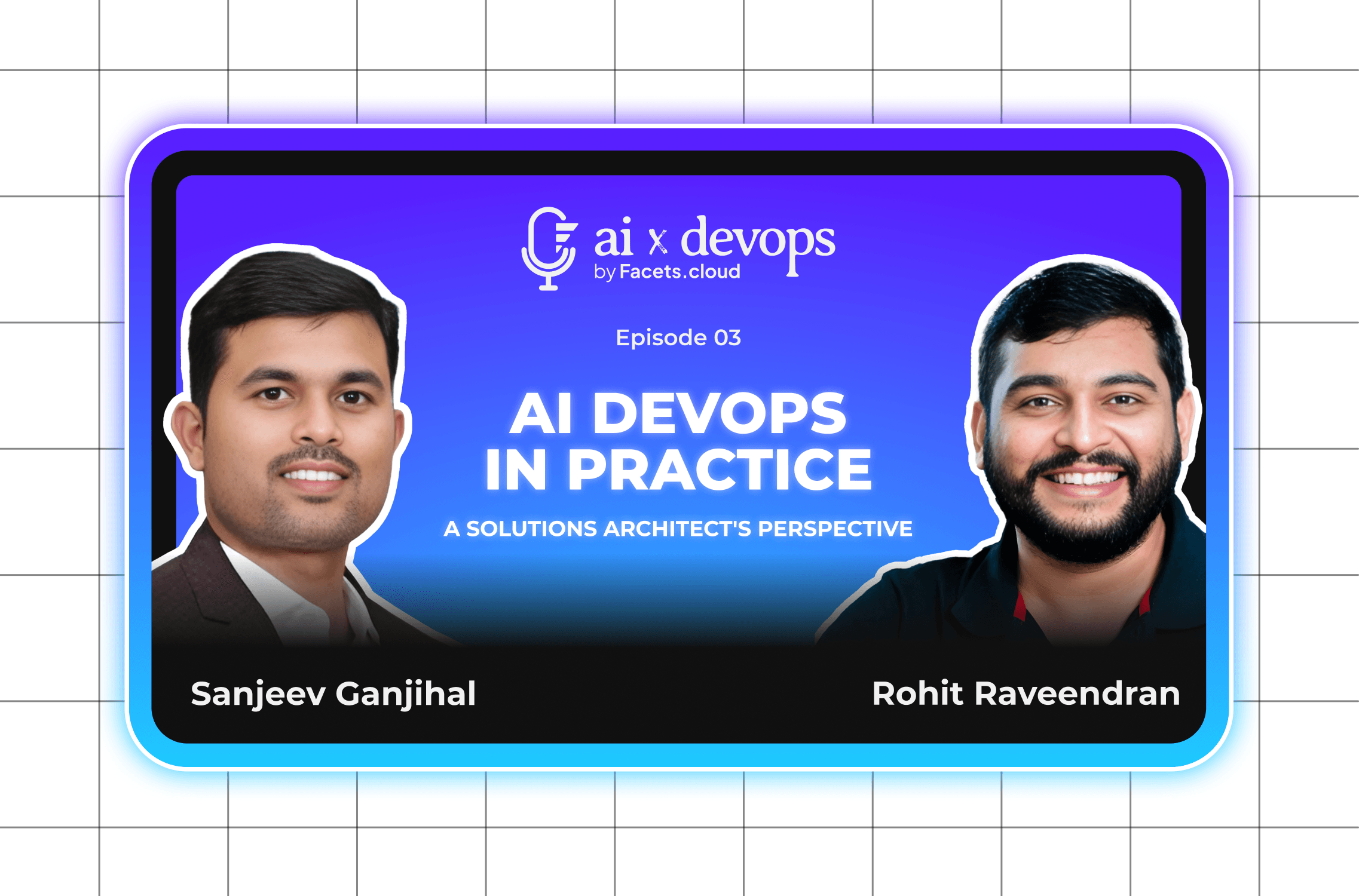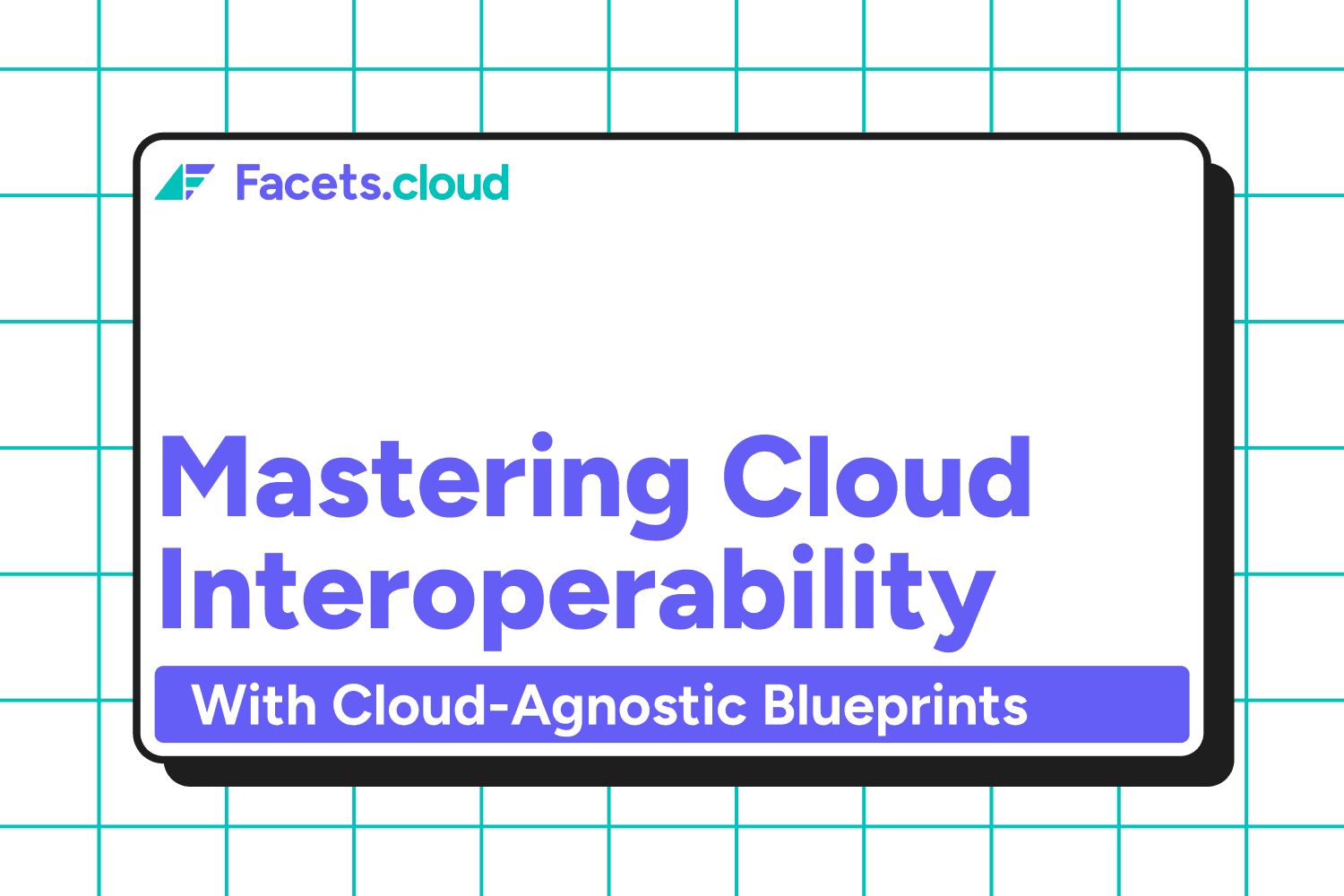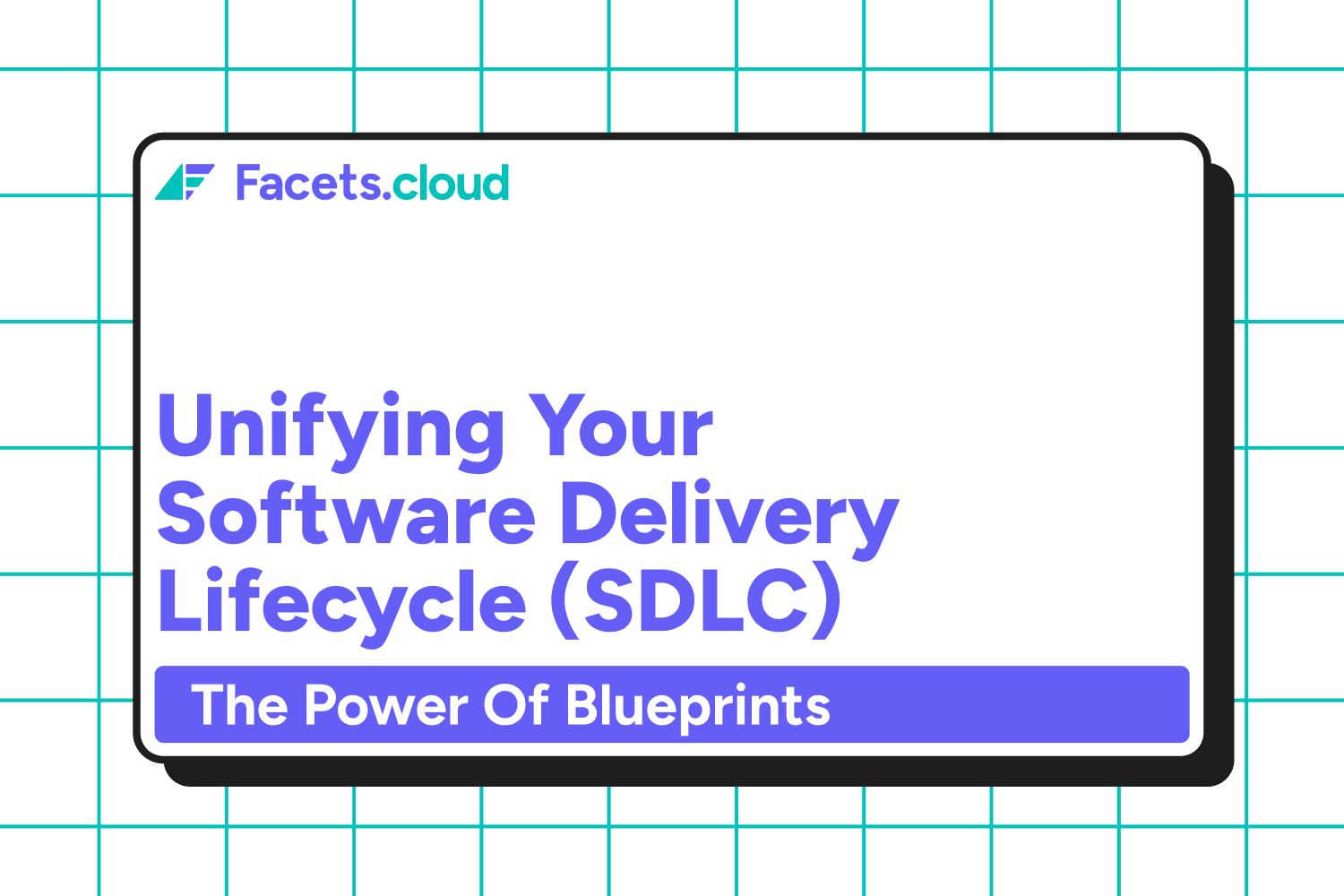In the dynamic landscape of modern software delivery, organisations often find themselves navigating a complex maze of tools: Terraform for infrastructure, Argo for deployments, GitHub for source control, and Helm for runtimes, to name but a few. While each of these tools excels at its specific layer, they were never designed to work together seamlessly. This often leads to fragmentation of practices, leaking costs, security and compliance issues, and a heavy reliance on manual glue code and tribal conventions.
At Facets, we recognise that standardising tools is not the same as driving standardisation in practice. The challenge isn't just automating Terraform workflows; it's about orchestrating across the entire software delivery lifecycle (SDLC). What was once simple deployment is now sophisticated orchestration, managing diverse layers by different tools and teams.
This is precisely where the Facets Orchestration Platform comes in. Facets Orchestration Platform is an "Uber Orchestrator", a net new tool that does not replace your existing tool and pipeline choices, but rather sits on top of them to orchestrate across them.
Why an Orchestrator? The Problem with Disconnected Tools
Despite adopting standard tools, organisations often find that reusability is limited to shared libraries, and pipelines embed one-off logic. This leads to inconsistencies, such as having "3 versions of every module, 5 ways to wire them". The core issue is that tools don't talk to each other. For instance, infrastructure must exist before CI/CD can deploy, CD pipelines struggle to discover what Terraform created, and GitOps often assumes everything is already wired. DevOps and platform teams spend significant time writing manual scripts and glue logic to make these tools work together.
Modern delivery goes beyond just applications or infrastructure; it encompasses application code, infrastructure, secrets, roles, pipelines, data, ML workflows, policies, compliance, schema, and seed data, among about 30 different categories of toolchains. Each of these requires consistent change management across environments, making orchestrating all these toolchains essential for consistent environments and the right developer abstractions.
How the Facets Orchestration Platform Unifies Your SDLC
The Facets Orchestration Platform addresses these challenges by providing a higher-level abstraction that enables safe, scalable self-service. Here's how it orchestrates across your toolchain:
Contract-Driven Infrastructure: Facets introduces Infrastructure Design by Contract, a fundamental shift from string-matching integrations to explicit, type-safe contracts between infrastructure components. This means connections are validated before deployment, eliminating costly trial-and-error debugging cycles and reducing the "Terraform integration tax". Platform teams define how infrastructure is built once, and developers declare what they need, with Facets generating the compliant Terraform.
Declarative Blueprints: At the heart of Facets are blueprints, which are declarative representations of your entire application architecture, including resources, relationships, and centrally managed declarations like database schemas or alerts. These blueprints are stored in Git repositories, ensuring version control, immutability, and traceability of changes.
Inner-sourcing of Automations: The platform empowers platform engineers to deduplicate automations and create reusable "Lego blocks" of automation, which are then added to the orchestrator through an inner-sourcing process. This approach fosters collaboration and ensures the platform evolves with changing needs, allowing organisations to combine standardisation with flexibility.
Environment-as-a-Service: Facets transforms environments into commodities. Instead of dated runbooks and project-specific automation, environments are always ready as a service, allowing for dynamic creation, mutation, and maintenance in a drift-free fashion, even across multiple clouds. This also supports advanced environment strategies like multiple isolated environments for parallel feature testing.
Unified Delivery Pipeline: Facets consolidates infrastructure, code, and configuration into a single model, enabling managed delivery of (Infra+code+config) and ensuring drift-free environments. This eliminates the need for separate pipelines and manual glue logic.
Addressing Terraform Bottlenecks: Facets offloads Terraform stitching from the developers and generates the IaC for every project X environment and effectively manages the state.
Lineage and Governance by Design: Facets provides explicit lineage from teams to blueprints, environments, and cloud resources. This centralises configuration details, enhances auditability, and enables proactive guardrails, ensuring security and compliance by design rather than through reactive audits. Its context-aware access control system aligns permissions with organisational structure, reducing role explosion and streamlining governance across cloud environments.
AI-Powered SDLC: Facets is building towards an AI-powered SDLC roadmap, where AI agents can assist with Terraform authoring, everyday debugging, FinOps, and release insights.
Outcomes and Impact
Organisations choose Facets for several compelling reasons:
Eliminate project-specific automation and drive 100% standardisation.
Achieve team autonomy and significantly reduce DevOps tickets (up to 95%).
Turn environments into commodities, maintaining them in a drift-free fashion across any cloud.
Experience 20% increase in Developer Productivity and 28% savings in cloud spend.
Benefit from 100% consistent environments.
Gain a pre-built developer experience based on blueprints, with options for headless use or integration with other portals like Backstage.
Conclusion
The Facets Orchestration Platform is extensible, self-hostable, and API-first, ready for multi-cloud and AI integration. It transforms operations by shifting from reactive troubleshooting to proactive design, allowing platform engineers to become enablers and developers to self-serve their infrastructure needs with confidence and guardrails.
By orchestrating seamlessly across your diverse toolchain, the Facets Orchestration Platform eliminates complexity, boosts efficiency, and ensures your infrastructure genuinely serves your business, rather than becoming a bottleneck. Book a demo with the founders today and get insights on into why an orchestrator is important to operate your infrastructure.


